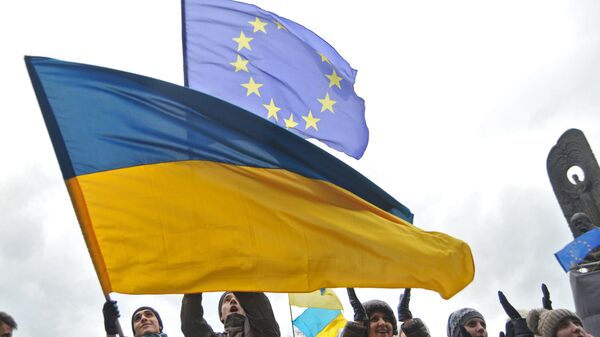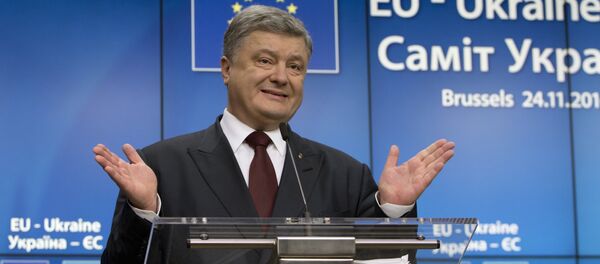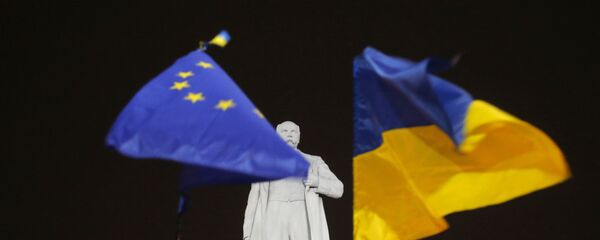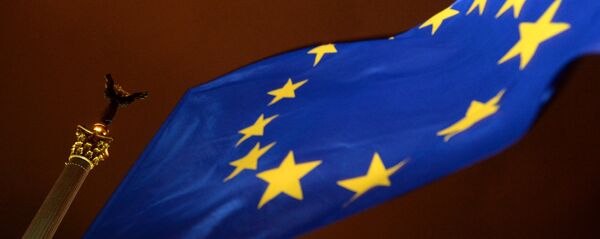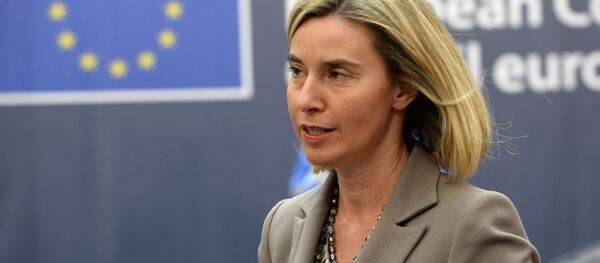The Council specified that it and the EU Parliament needed to sign the adopted regulation. Ukrainian President Petro Poroshenko said in an address the signing would take place in Strasbourg on May 17. After that, the text of the regulation would be published in the EU Official Journal and would enter into force 20 days later — most likely on June 11.
UKRAINE’S WAY TO VISA-FREE DEAL WITH EU
The EU-Ukraine dialogue on visa liberalization was launched in 2008. In November 2010, the European Union proposed an action plan to Kiev for granting the visa-free regime. The European Commission confirmed in December 2015 that Ukraine had met all its conditions. On February 10, 2017, European Commission President Jean-Claude Juncker said the bloc would scrap visa requirements for Ukraine before summer.
On May 11, the European Council approved the short-term visa-free travel for Ukrainians. But the EU Council said the European Union might suspend the deal over migration or security concerns after a regulation was adopted in February to strengthen the visa waiver suspension mechanism which allowed for the visa regime to be reintroduced more easily in exceptional cases.
PRAISE FROM KIEV
President Poroshenko said that EU granting visa-free travel to Ukraine confirmed "the strategic correctness" of Ukraine’s course for European integration, adding this decision came in recognition of Ukraine’s reform progress.
Ukrainian Prime Minister Volodymyr Groysman compared granting visa-free travel with the fall of the Berlin wall and said that Ukrainians would be able to travel to the European Union starting June 11.
The Ukrainian Foreign Ministry said that Kiev welcomed the decision of the EU Council and was looking forward to the completion of technical procedures of the visa-free travel introduction.
The Ukrainian party Opposition Bloc also welcomed the decision of the EU Council, noting that it was "an advance payment" and the obligation to make Ukraine a truly European state.
"The European Union made this decision for the citizens of our country, and not for the current authorities, who are trying to declare granting visa-free regime to Ukraine their achievement," the Opposition Bloc said in a statement.
Ukrainian political analyst Oleg Voloshin said that the EU decision to introduce visa-free travel was a victory of Ukrainian diplomats who had been tackling this issue for many years.
'SYMBOLIC ACT'
Russian Deputy Foreign Minister Aleksey Meshkov said the decision had done little in the way of easing the current system, pointing out that the restriction on the duration of stay remained and that the new regulations had "nothing to do with work authorization."
"We understand that the so-called visa-free regime with Ukraine is to some extent this carrot on a string that slightly eases the existing system," Meshkov said.
Konstantin Kosachev, the chair of the Russian upper house of parliament's Foreign Affairs Committee, told Sputnik that the visa-free regime between Ukraine and the European Union is a "symbolic act" rather than a real change for Ukrainians.
"I think that we should be calm about the visa waiver for Ukrainian citizens by the European Union. It is rather a symbolic act than a radical change of the situation for the Ukrainians, taking into account the number of conditions and requirements that remain for them," Kosachev said.
Ruslan Bortnik, Head of the Ukrainian Institute for Analysis and Management of Policy, told Sputnik that Ukraine had not reached the ultimate goal of the country’s pro-European efforts.
"This is certainly a positive decision for the development of social, cultural and business ties with the European Union. But at the same time, it is not a visa-free regime, it is a simplified visa regime. It is very important that this simplified visa regime, which Ukraine has achieved, should not be used by the government to disguise the real goals which the society puts before the authorities, i.e. EU membership, a democratic government, and high standards of living," Bortnik stressed.
Mikhail Pavliv, a Kiev-based political scientist, told Sputnik that this decision, for which the current government had paid a "too high" price, would provoke a new wave of illegal migration in Ukraine, which would only lead to Ukraine's reputation losses and discontent of EU officials.
